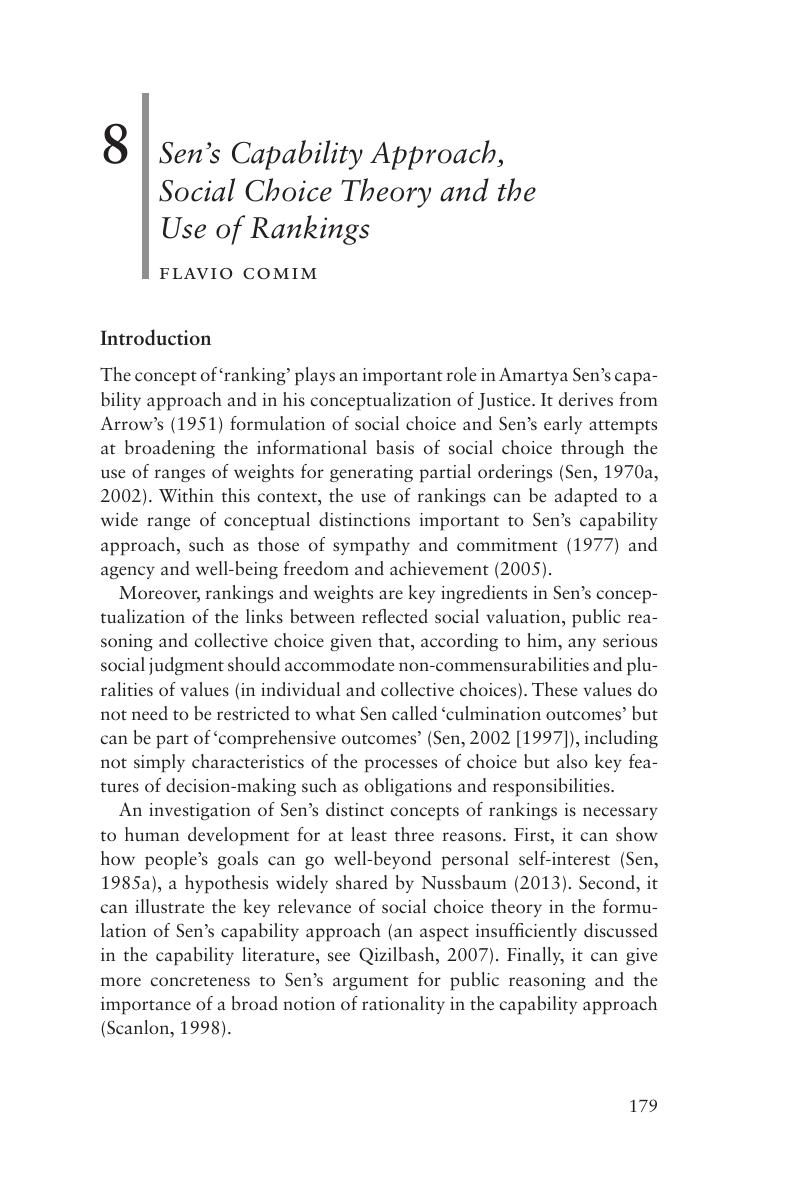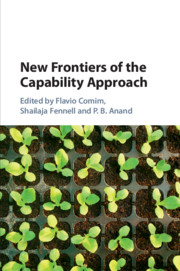Book contents
- New Frontiers of the Capability Approach
- New Frontiers of the Capability Approach
- Copyright page
- Contents
- Figures
- Tables
- Contributors
- Preface and Acknowledgements
- 1 Introduction
- 2 On Sen on the Capability of Capabilities
- Part I The Need for New Foundations
- Part II The Operationalisation Frontier
- 8 Sen's Capability Approach, Social Choice Theory and the Use of Rankings
- 9 Selecting Capabilities for Development
- 10 From Resources to Functioning
- 11 Demystifying the Use of Simultaneous Equation Models for Operationalising the Capability Approach
- Part III The Application Frontier
- Part IV The Housing and Urban Frontier
- Part V The Education Frontier
- Author Index
- Subject Index
- References
8 - Sen's Capability Approach, Social Choice Theory and the Use of Rankings
from Part II - The Operationalisation Frontier
Published online by Cambridge University Press: 08 October 2018
- New Frontiers of the Capability Approach
- New Frontiers of the Capability Approach
- Copyright page
- Contents
- Figures
- Tables
- Contributors
- Preface and Acknowledgements
- 1 Introduction
- 2 On Sen on the Capability of Capabilities
- Part I The Need for New Foundations
- Part II The Operationalisation Frontier
- 8 Sen's Capability Approach, Social Choice Theory and the Use of Rankings
- 9 Selecting Capabilities for Development
- 10 From Resources to Functioning
- 11 Demystifying the Use of Simultaneous Equation Models for Operationalising the Capability Approach
- Part III The Application Frontier
- Part IV The Housing and Urban Frontier
- Part V The Education Frontier
- Author Index
- Subject Index
- References
Summary

- Type
- Chapter
- Information
- New Frontiers of the Capability Approach , pp. 179 - 197Publisher: Cambridge University PressPrint publication year: 2018
References
- 4
- Cited by

